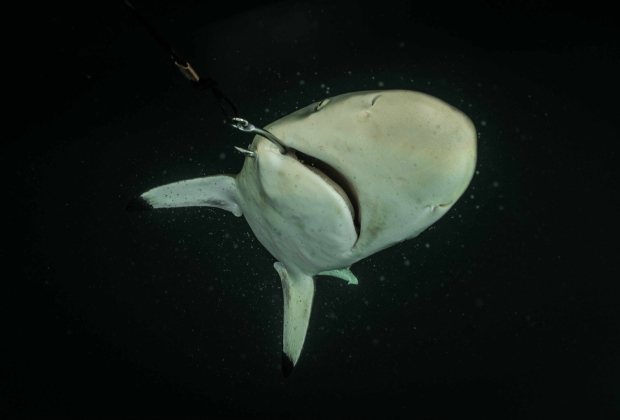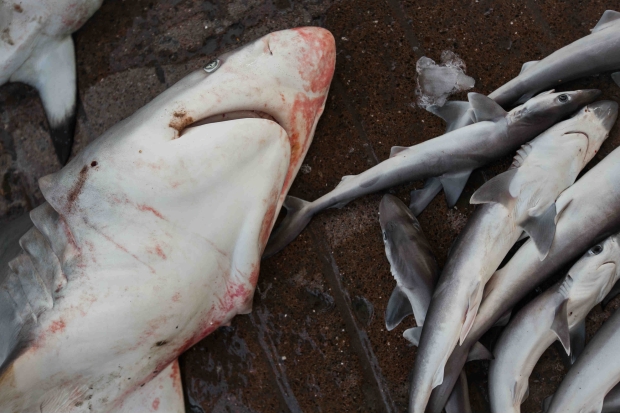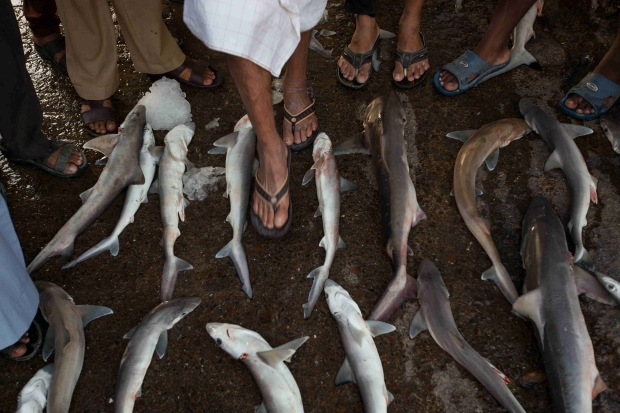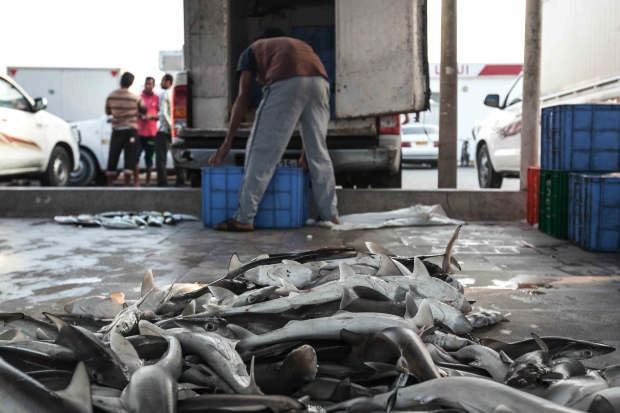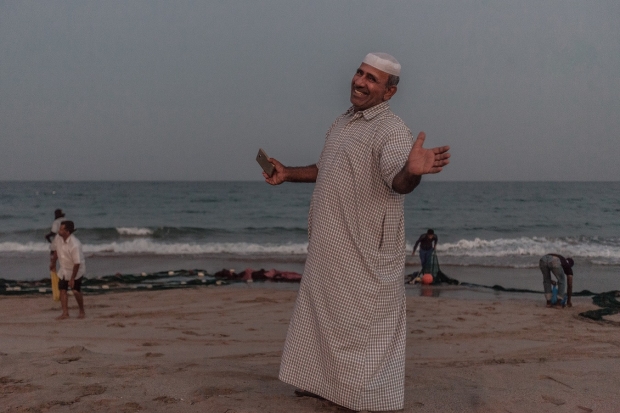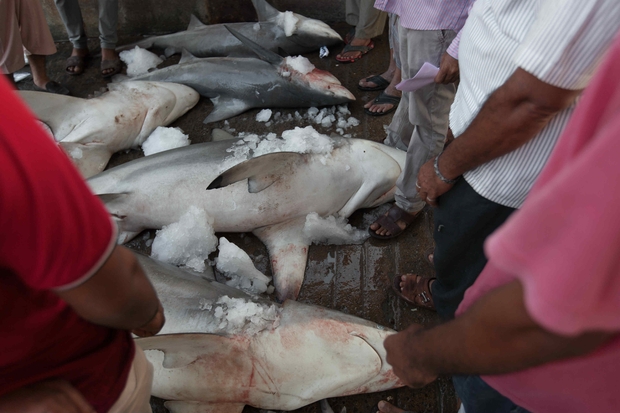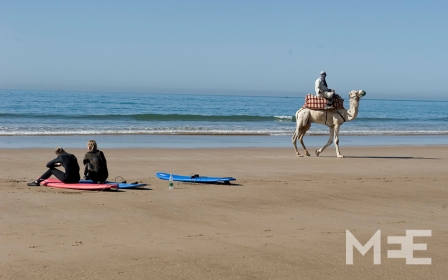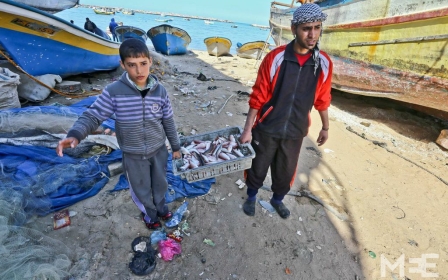In pictures: Omani fishermen play their part in destructive global shark trade
At the northern tip of Musandam, which faces the Strait of Hormuz, many fishermen jump on their boats at dawn and silently sail off from the isolated village of Kumzar in search of any sharks that remain.
"Shark fishing is an established tradition," says Abdallah Kumzari, 52, who is an imam and a shark trader. At the foot of impressive golden mountains, sunlight is reflected off the oily surface of the sea. "Today, big sharks can sell for as much as 500 rial (US 1,300)," he says.
"Here in Musandam, we have nothing. Look at our monthly salaries," complains Said Sheesa, a former shark fisherman who lives in the Omani coastal city of Dibba. Due to reduced fish stocks, Sheesa gave up fishing to work in tourism instead.
But according to Hossein Ali, an expert in marine environment at the ministry of agriculture and fisheries who spoke to MEE by phone, "none of the species in the waters of Oman are threatened".
"If you want to fish for sharks here in Oman, for trade, for example, it is enough to have a licence if you don’t use industrial fishing tools," he adds.
Ali says he was not aware that Oman is a signatory to the Convention on International Trade in Endangered Species of Wild Fauna and Flora (CITES), which protects wildlife against over-exploitation and prevents international trade from threatening species, or that it exists at all.
Jabado’s report on the trade in sharks and their products in the United Arab Emirates, which was published in September 2014, found that "45.3 percent of species traded were considered to be at high risk of global extinction based on the IUCN Red List Global Assessments," according to inquiries cited in the report made on shark markets in Dubai in 2014, where most of the sharks fished in Oman are initially exported to.
A few years ago, "a trader admitted to me that it was via the aircraft company Emirates that his shark fins were imported to Hong Kong. I called Emirates with this information to challenge them about their responsibility in this [matter]. They answered that they did not transport sharks fins… But the truth is, they do not know what there really is in the boxes registered as 'seafood'," Stokes added.
In response to the allegations, a spokesperson from Emirates airline told MEE by e-mail that the transportation of all shark fins has been banned on Emirates SkyCargo flights since June 2013.
“Emirates doesn’t transport sharks from Oman and all fish shipments must receive a certificate from Oman’s ministry of fisheries before they are accepted for carriage, so there can be no risk of illegal shipments,” the Emirates spokesperson said. “We work closely with the United for Wildlife Transport Taskforce, and we are committed to preventing the transportation of illegal wildlife and wildlife products.”
In Oman, shark fishing can be a sensitive subject and fishermen remain powerful.
“Any bans or changes in legislation to regulate catches or even gear directly impacts the fishermen and their families, especially in remote coastal areas where fisheries are a source of subsistence," Jabado says. "In the region, fishermen are particularly strong because of the cultural role fisheries play and the fact that government would like to see this sector develop."
Several sources interviewed by MEE, who asked to remain anonymous for safety reasons and are opposed to the fishing of sharks in Oman, spoke about facing violence and intimidation from the local authorities after attempted enquiries about the trade.
"There is no longer anything under the water," confirms Abdellah Mohammed Ali al-Dahouri, 70, a descendant of one of the most famous fishing families in the region.
Middle East Eye propose une couverture et une analyse indépendantes et incomparables du Moyen-Orient, de l’Afrique du Nord et d’autres régions du monde. Pour en savoir plus sur la reprise de ce contenu et les frais qui s’appliquent, veuillez remplir ce formulaire [en anglais]. Pour en savoir plus sur MEE, cliquez ici [en anglais].


